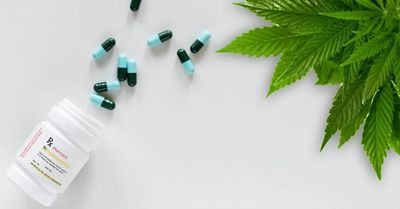
Cannabidiol, commonly known as CBD, has gained significant popularity in recent years for its potential health benefits. As more people seek alternative and natural remedies, CBD has emerged as a popular choice. However, it is crucial to understand the potential interactions between CBD and certain medications.
The Rise of CBD in Health and Wellness
CBD, derived from the hemp plant, is a non-psychoactive compound that has been shown to have various therapeutic effects. It is commonly used for its potential anti-inflammatory, analgesic, and anxiolytic properties. As a result, people have turned to CBD to alleviate a wide range of conditions, including chronic pain, anxiety, insomnia, and even epilepsy.
The increasing popularity of CBD has led many individuals to incorporate it into their daily wellness routines. However, it’s vital to recognize that CBD can interact with certain medications, potentially causing unwanted side effects or altering the effectiveness of the drugs.
Understanding Drug Interactions
Drug interactions occur when two or more substances, such as medications and CBD, affect one another’s effects in the body. These interactions can lead to unexpected side effects, reduced drug efficacy, or even severe health risks.
When CBD interacts with specific medications, it can either increase or decrease their effects. This is because CBD affects the way certain enzymes in the body metabolize drugs, potentially altering their concentration in the bloodstream.
The Cytochrome P450 System
CBD’s interaction with medications is primarily attributed to its impact on the Cytochrome P450 enzyme system. This system is responsible for metabolizing drugs in the liver. CBD can inhibit or induce these enzymes, affecting their ability to break down certain medications.
Some medications that are metabolized by the Cytochrome P450 system include anti-epileptic drugs, blood thinners, antihistamines, antidepressants, and certain cholesterol-lowering medications. When CBD inhibits these enzymes, the concentration of these medications in the bloodstream may rise, potentially leading to increased side effects.
On the other hand, CBD can also induce enzymes responsible for metabolizing certain medications, leading to lower drug concentrations. This reduced concentration may decrease the effectiveness of the medication, rendering it less potent in treating the intended condition.
Consulting with Your Healthcare Provider
If you are considering taking CBD alongside your current medication regimen, it is crucial to consult with your healthcare provider. They can help you determine the potential risks and benefits of incorporating CBD into your routine.
Your healthcare provider will consider factors such as the specific medication you are taking, your dosage, and your overall health before advising on CBD use. They may recommend starting with a low CBD dose and closely monitoring your response to identify any potential interactions.
Conclusion
CBD has shown great promise in various health and wellness applications. However, it is important to be aware of potential drug interactions when combining CBD with certain medications. Consulting with your healthcare provider can help ensure the safe and effective incorporation of CBD into your routine. By understanding the potential risks, you can make informed decisions regarding your health and well-being.
